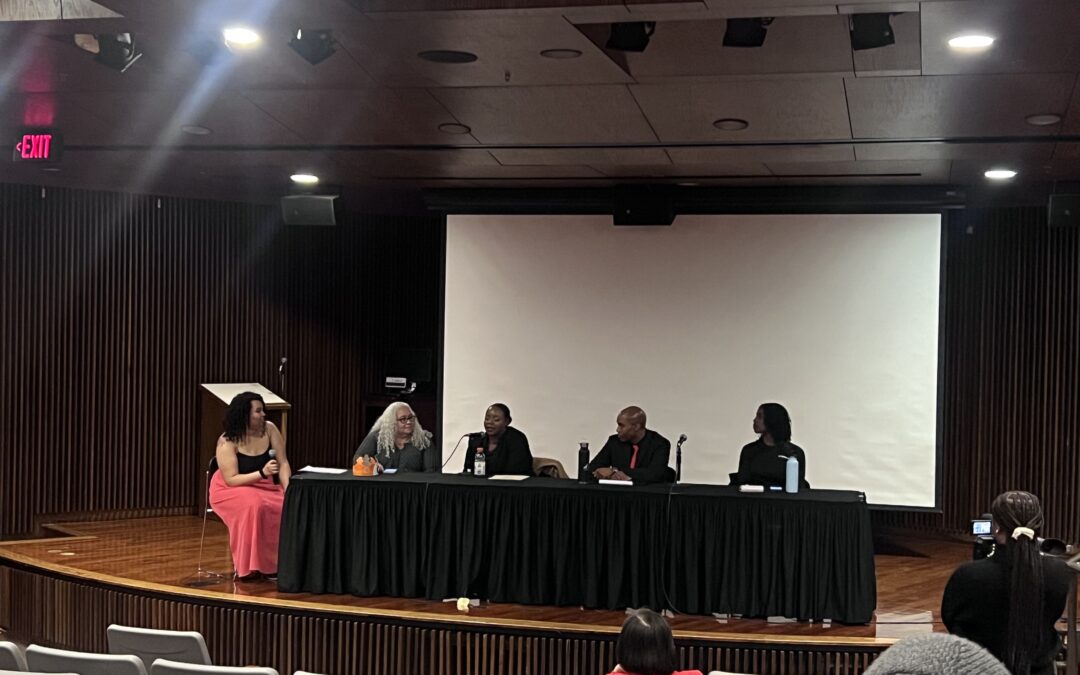Article Written by Chandra Colvin. Photo by Chandra Colvin.
On Wed., March 13th, the Women’s Center held a panel discussion titled, Wearing Your Crown.
The panel was in partnership with several other St. Cloud State University offices and off-campus organizations. These partnerships included Community Anti-Racism Education Initiative (CARE), Ethnic and Gender Women’s Studies Department, SCSU Multicultural Student Services, St. Cloud Technical Community College, and The Arc Minnesota-Midstate.
Wearing Your Crown focused on the experiences of BIPOC women moving in professional working spaces while wearing their natural hair. Four panelists were invited and joined in the discussion about their experiences of wearing their natural hair in working spaces.
Panelists included SCSU staff Gabrielle “Elle” Brown, Head Coach of the Women’s Track and Cross Country team, Chocoletta Simpson, Vice President for Equity and Inclusion & Title IX Coordinator, Jason Woods, Vice President for Strategic Enrollment Management, and Angelica Penã, SNAP-Ed Health & Wellness Coordinator with the University of Minnesota Extension. The panel was moderated by Tatiana Woods, a student at SCSU who inspired the initial idea of a panel discussion and worked with the Women’s Center to host.
Discussions within the overall panel touched on subjects of self-confidence, power dynamics, privilege, and culture in relation to how their natural hair is viewed by institutions of work and society.
In one particular question, “Did negative reactions [regarding your hair] affect self-confidence?” All four panelists said that it did.
The question brought up further discussion regarding the projection of fears and narratives that play into the stereotypes of BIPOC communities depending on the type of hairstyle that is worn. All panelists experienced that the treatment from others varied depending on what their current hairstyle was. Treatment also varied within cultural aspects, such as a certain hairstyle being desirable in one community but not by another, such as work settings or non-BIPOC communities.
Panelists continued to share their own stories and stories of those that they have personal connections with that have had similar stories. While the conversation brought up such negatives, there were also positives throughout. Panelists expressed their love for their natural hair and that there needs to be more advocating for the right to wear natural hair without being deemed “unprofessional” or seen negatively at first glance.
Advocating for changes in work, schools, and other institutions can help to change the dominant narratives that define what is “proper” or “presentable” hair. Panelists said that these definitions can vary among communities and that for many BIPOC communities, there are historical contexts in which hairstyles derive from.
The panel overall aimed to uplift and bring awareness to the issue that is hair discrimination.
The CROWN Act, which stands for “Creating a Respectful and Open World for Natural Hair,” is a law that prohibits race-based hair discrimination, which is the denial of employment and educational opportunities because of hair texture or protective hairstyles.
27 states, including Minnesota, have already signed the act into law according to The official CROWN Act’s website.
The panel ended with a follow-up Q&A session with the audience. All were more than happy to answer questions, with one question leading to an in-depth discussion of advice to those that they feel can’t have natural hair. Other questions surrounded perceptions of others in the world of social media when people are held to a certain standard, specifically around Black women and the standards that they are expected to hold.
Wearing Your Crown left many praising both the panelists and organizations involved.






Recent Comments